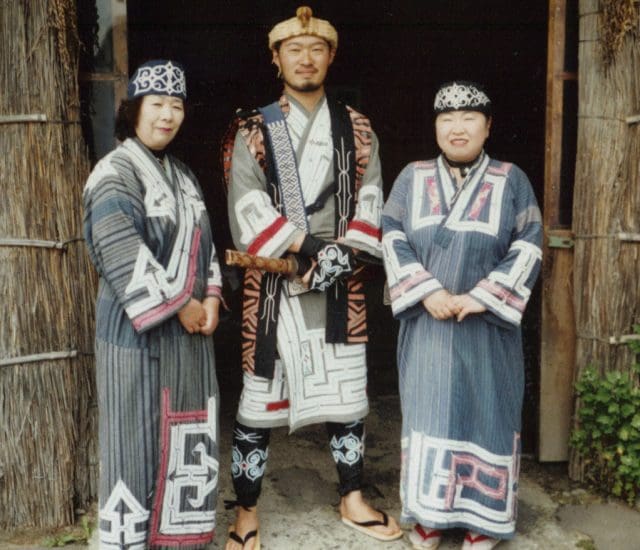An exploration of the Ainu’s passing of traditions through folk songs and musical practices. Ainu are the indigenous people of the island of Hokkaido, and the latter was annexed and colonized by Japan in 1869. Due to the Land of the Rising Sun’s oppressive policies of assimilation, the culture and language of Ainu got largely suppressed. Today, it is estimated that only 100 native speakers of the Ainu language remain.
Ainu Songs - Yukar
Nowadays however, things are slowly changing; in 2008, a parliamentary resolution affirming Ainu as an indigenous people of Japan was passed. And again, in 2019, Ainu were granted legal recognition; but they still do not feature in the constitution. Moreover, in Shiraoi, a museum was even erected to promote Ainu culture. Yet, Kanaka Uzawa an Ainu scholar, advocate and artist asserts that it is one thing to promote a culture and language and another to actually recognize the identity attached to the latter, being a strong proponent of “self determination rights”. As such, she has taken it upon herself to use her voice and to combine creativity with academic knowledge in order to advocate for her people the Ainu. Her goal is to raise awareness and to inspire and to create dialogue between other minority groups. Their peculiar culture and language (an isolate), clearly distinct from that of the Japanese, is kept alive by musical performances.
Oki Dub Ainu Band - Suma Mukar
Indeed, music has a central role in Ainu cohesion, as traditional songs are the only language components mutually intelligible by the different dialects; moreover, as the culture is essentially oral, songs are useful to understand the habits and beliefs of the ancient Ainu people. The music and songs themselves can be divided into several categories, each having a different social meaning and utility. The Upopo are short chants used daily to bring good luck or ward off spirits; as such, they are often sung during work or while walking. The Yukar, epic songs taking the form of monologues, are especially important when it comes to the greater Ainu people. Indeed, they connect the different tribes by portraying common legends, tales of origin and folk history that can be understood throughout the entire Hokkaido. They can thus be heard during ceremonies or gatherings panning multiple tribes, and sometimes even prescribe how to conduct certain rituals. The Rekuhkara and Yaisama styles are mostly used as games, to strengthen social bonds within a group. The latter is also commonly used as a self-introduction when talking to a large group.
Mukkuri Hawehe - Sound of Mukkuri
Through these examples, we can see that Ainu songs represent way more than a simple cultural feature: they are omnipresent in everyday life and help to structure the social bonds within and between native tribes. In terms of preserving the language and traditions, they thus are of utmost importance, and also a matter of reappropriation: those songs that were, in the past, source of shame and stigma, are now becoming again the pride of the Ainu people; and a way to reconnect with their secular traditions.
Battaki - Imeruat
photo : Ainus wearing their traditional clothes, Ainu Museum, City Of Shiraoi, Hokkaido, Japan Torbenbrinker
This article is a result of a collaborative project between #AuxSons and Alejandro Abbud Torres Torija, lecturer at Sciences Po Paris Campus Reims, and regular contributor to #AuxSons. As part of the class “Languages of the World/ World of Languages”, international students from Sciences Po Paris Campus Reims prepared articles presenting contemporary music from different parts of the world in connection with recent socio-political events.
The authors :
Pauline Piketty is a second year student at Sciences Po Paris. She is French, but has lived the majority of her life in the United States and the United Kingdom. She speaks French, English, Spanish and is currently learning Italian. She is particularly interested in Political Philosophy and more specifically notions of toleration (John Locke), autonomy (Nozick, Isaiah Berlin), recognition (Axel Honneth) and justice (Rawls). All of these concepts concern minorities and Pauline was thus able to apply and build on her previous knowledge when studying the Ainu, their culture and music.
Enzo Bossard is a second year student at Sciences Po Paris, in the major Economy and Society. Born and raised in France, he learned English on his own, and learned Spanish, German and Latin in school. Later, he took an interest in Japan and began self-teaching the language. As a future student at Hokkaido University, the Ainu culture and its struggles seemed closer and their study was a way to better apprehend the culture and history of his host region.


